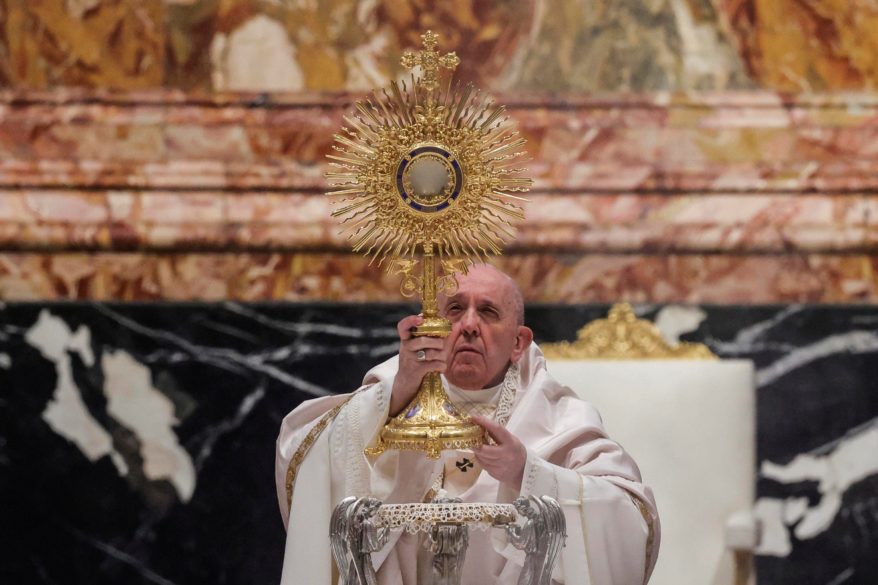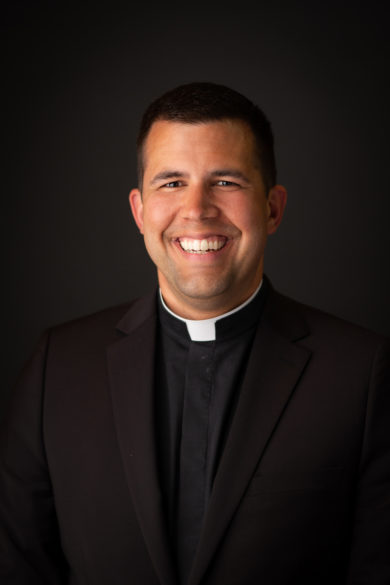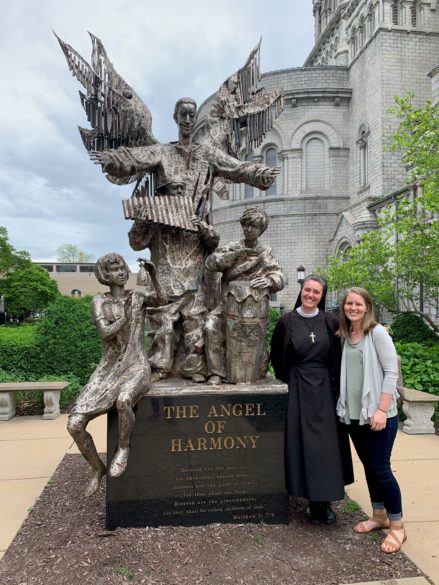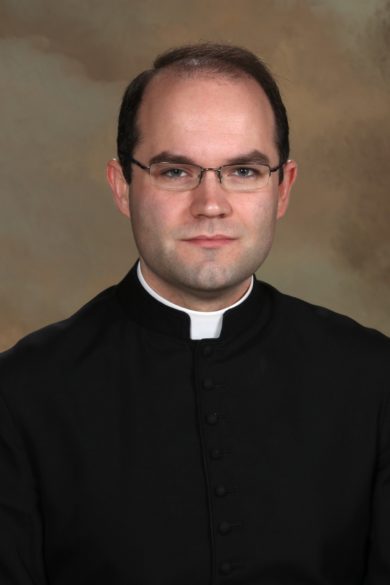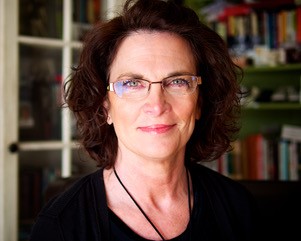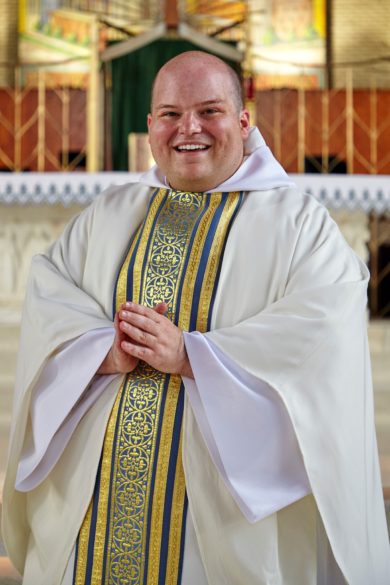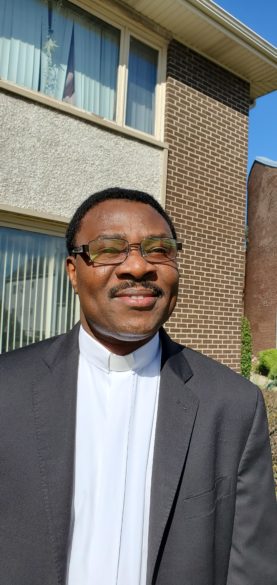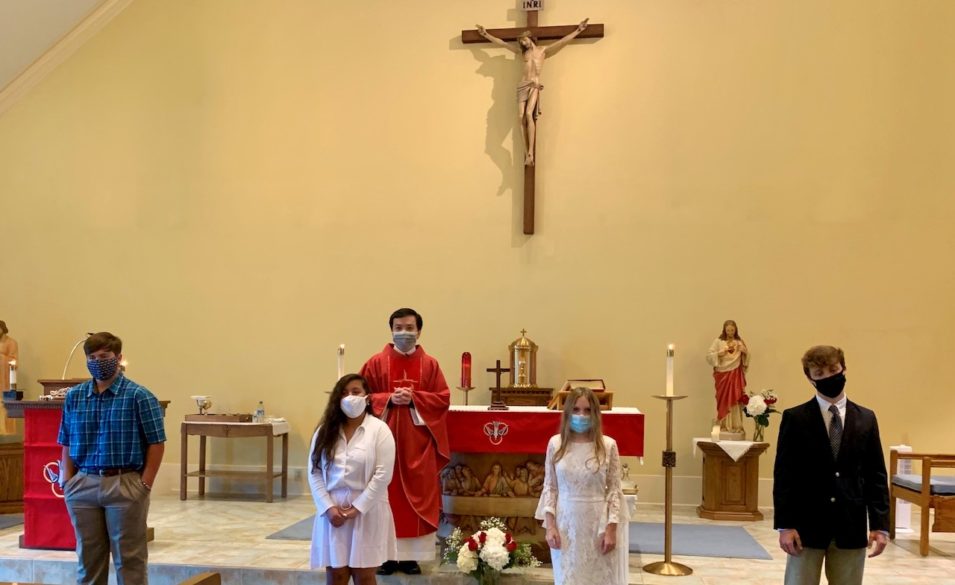(Nota del editor: A continuación, se muestra la homilía que el obispo Kopacz pronunció en la Misa de Entierro Cristiano del obispo Joseph N. Latino el 9 de junio de 2021.)
Por Obispo Joseph R. Kopacz, D.D.
Mi primer encuentro con obispo Latino fue cuando llegué al aeropuerto de Jackson, la noche antes de que me anunciaran como el undécimo obispo de Jackson, el 12 de diciembre de 2013. Él estaba allí para darme la bienvenida. Tenía una sonrisa muy amplia al saber que su sucesor era real y que ya había llegado. Su espíritu amable y acogedor se mantuvo constante durante estos últimos siete años y medio de muchas maneras. Hubo algunos momentos clarificadores incluso antes de yo llegar aquí. Algunos confundieron su segundo nombre, Nunzio, con Nuncio, y pensaron que yo estaba sustituyendo al delegado Apostólico. Otros observaron que mi facilidad con el idioma español me serviría bien porque estaba reemplazando a un Latino. ¡Oh bien!, pensando que él, en realidad descendiente de italianos, era Latinoaméricano.
Ut Unum Sint – Que todos sean uno

La unidad que proclama el lema episcopal de obispo Latino está en el centro de la gran oración sacerdotal de Jesús en la Última Cena en el Evangelio de Juan. Esta oración tiene su fuente y cumbre en la unidad que Jesucristo tiene con el Padre y el Espíritu Santo, un misterio tejido a lo largo del Evangelio de Juan que inspiró tanto a Obispo Latino y que fue su selección del Evangelio para la Misa de hoy.
El Evangelio de Juan comienza sublimemente: “En el principio ya existía la Palabra; y aquel que es la Palabra estaba con Dios y era Dios.“ En medio del Evangelio en la Última Cena, en el lavado de los pies comienza con la audaz afirmación de que “Jesús sabía que había venido de Dios, que iba a volver a Dios y que el Padre le había dado toda autoridad; así que, mientras estaban cenando, se levantó de la mesa, se quitó la capa y se ató una toalla a la cintura. …”
Hacia el final del Evangelio, en la noche de la resurrección, Jesús insufló a sus apóstoles el don del Espíritu Santo, después de abrazarlos en paz y decirles: “como el Padre me envió a mí, así también yo os envío.” Sus apóstoles, ungidos en el Espíritu Santo y consagrados en la verdad para la misión, fueron enviados a predicar el Evangelio como cuerpo vivo, en toda su diversidad. ¡Eran uno! En su lema episcopal y en su elección del Evangelio para la liturgia fúnebre de hoy, encontramos que el núcleo de la vocación del obispo Latino al sacerdocio culmina con su consagración como el décimo obispo de Jackson. El pasaje del Evangelio de hoy está bajo el título “La autoridad del Hijo de Dios”. “De cierto, de cierto os digo: el que oye mi palabra y cree al que me envió, tiene la vida eterna… Porque como el Padre tiene vida en sí mismo, también le ha concedido al Hijo el tener vida en sí mismo.”
No hay duda que obispo Latino vivió su vocación sacerdotal con un profundo sentido del llamado del Señor y la autoridad sobre su vida. A lo largo de sus 58 años y dos días en el sacerdocio de Jesucristo sirvió con el corazón del Buen Pastor, para edificar su cuerpo, la Iglesia, para la salvación de todos, con esa gracia que escuchamos al final del pasaje de Tesalonicenses: “Anímense unos a otros y edifíquense unos a otros”.
Como el profeta Jeremías, Obispo Latino sintió el llamado del Señor al sacerdocio desde su juventud. Al igual que a Jeremías, hubo desafíos desalentadores, como uno puede esperar al presentarse para servir al Señor y como dice sobriamente el Libro de Eclesiástico, pero una vez que el Obispo Latino puso su mano en el arado, no miró hacia atrás. Fue ordenado sacerdote en 1963 en pleno Concilio Vaticano II. Justo cuando pensaba que tenía todas las respuestas, después de 12 años de formación en el seminario, en cuestión de dos o tres años, la Iglesia y el mundo cambiaron la mayoría de las preguntas. Obviamente, cavó más profundo y en las palabras del Libro de Sirácides (Eclesiástico) puso su corazón y se mantuvo firme, por la gracia de Dios.
Cuarenta años más tarde, después de servir firmemente en la Arquidiócesis de Nueva Orleans y en la Diócesis de Houma-Thibodaux como vicario general y pastor de la Catedral durante muchos años, estaba anticipando una reducción en sus deberes sacerdotales, por así decirlo, como tal vez ir a una parroquia pequeña. ¡Oh bien! El teléfono sonó; aceptó la llamada y respondió a la llamada. Una vez más enderezó su corazón y se mantuvo firme, y se mudó al norte para convertirse en el décimo obispo de esta asombrosa diócesis.
El obispo Latino se había presentado para servir al Señor en una temprana edad, y la firmeza perduró como una virtud definitoria de su carácter y su sacerdocio, una mentalidad que lo motivó a trabajar en la viña del Señor en una variedad de ministerios pastorales, para lograr esa unidad para que el Señor Jesús oró y dio su vida.
Durante sus diez años como obispo de Jackson, el Señor produjo un nuevo crecimiento, fruto que perdura hasta el presente. Por supuesto, sin pretensiones, en sus palabras se podría decir, “simplemente me puse a su voluntad, fuera del camino de Dios.”
San Juan Pablo II, con motivo de su 50 aniversario de ordenación, escribió una reflexión sobre su sacerdocio titulada Don y Misterio. En el capítulo siete, pregunta: ¿Quién es el sacerdote? ¿Qué significa ser sacerdote? Recordó las palabras de San Pablo. “Así es como deben considerarnos, como servidores de Cristo y administradores de los misterios de Dios. Ahora se requiere que los mayordomos sean considerados dignos de confianza.” (1Cor. 4: 1-2)
Agradecemos con gozo el servicio confiable del Obispo Latino durante casi seis décadas, durante años en la plenitud de su fuerza y con el paso del tiempo aceptando los cambios en su salud que lo humillaron, como en nuestra primera lectura, las palabras de Sirácides. En su retiro, por momentos, lamentó las limitaciones físicas que le impedían servir más activamente en la diócesis, pero al pie de la Cruz, su presencia y ministerio de oración eran un tesoro para nosotros. Su temprana formación monástica le sirvió bien en sus últimos años. A pesar de todo, confió en el Señor que lo llamó desde su juventud, y con santo temor, envejeció en Dios.
Mi último encuentro con el Obispo Latino fue sentado junto a su cama pocas horas antes de su muerte, rezando el rosario en voz baja y rezandole la Oración Nocturna, mientras pasaba lentamente de este mundo al siguiente, dije las palabras que él ya no podía:
Ahora, Maestro, deja que tu sirviente se vaya en paz. Has cumplido tu promesa.
Mis propios ojos han visto tu salvación, la que has preparado a la vista de todos los pueblos.
Una luz para todas las naciones;la gloria de tu pueblo Israel.
Esta es la piedra angular de la oración nocturna que todos los sacerdotes ofrecen al final del día, recordándonos quién es el maestro y cuya gloria está en acción. Confío en que a medida que el cuerpo de Obispo Latino se consumía, su yo interior se renovaba todos los días, en las palabras de San Pablo ‘Lo que se ve es transitorio, lo que no se ve es eterno’.
Concédele, oh, Señor, el descanso eterno y deja que brille para él la vida eterna. Ya puede descansar en paz. Amén.
Que su alma y las almas de todos los fieles difuntos descansen en paz. Amén.

